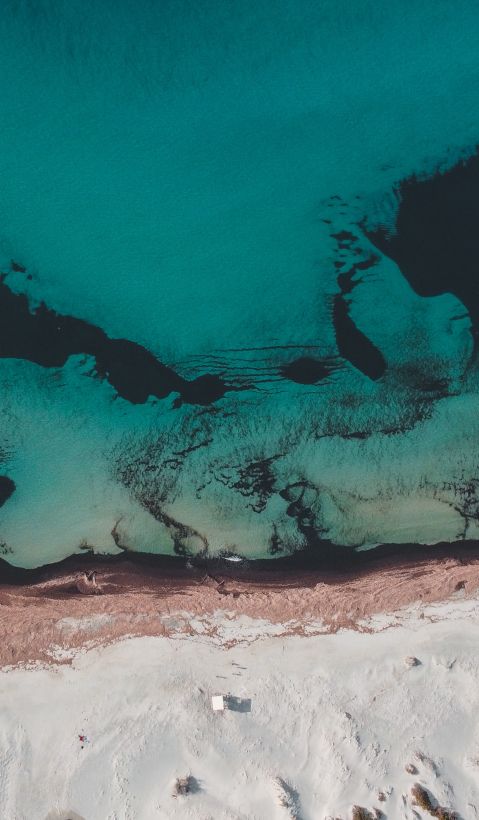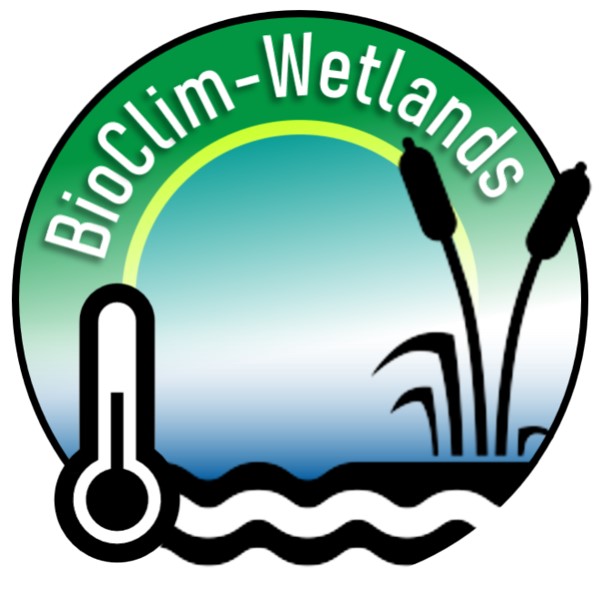
This conference aims to strengthen the exchange of experiences among scientists, policy makers and practitioners. We believe that this is done best through meeting in person. Therefore, please note that the conference will take place in Bonn, Germany as an in-person event.
Day 1 - TUESDAY, SEPTEMBER 26th
| 08:30-10:30 | Arrival, introduction and opening |
| From 8:30 on |
Arrival and Check-In |
| 09:30 |
Welcoming words by Steffi Lemke, Ministry for the Environment, Nature Conservation, Nuclear Safety and Consumer Protection (video) Dr. Musonda Mumba, Ramsar Convention on Wetlands (video) Thomas Graner, Federal Agency for Nature Conservation Simon Duffield, ENCA |
| 10:00 |
Opening keynote by Brian MacSharry, Head of Group, Nature and Biodiversity, European Environment Agency |
| 10:30-13:00 | Session 1: Riverine and coastal wetland biodiversity and climate change - Facing upcoming challenges |
|
|
The aim of this session is to assess current and projected impacts of climate change on coastal and riverine wetlands and their biodiversity in Europe. We will explore key vulnerabilities and discuss how to boost resilience, how to deal with future changes and uncertainties adaptively, and what these new dynamics imply for decision-making in the context of wetland conservation, restoration and sustainable management. |
| 10:30 |
Keynote by Prof. Dr. Klement Tockner (Senckenberg Society for Nature Research) |
| 11:00-11:30 |
Coffee & Tea Break |
| 11:30 |
Talk 1: Model chains, uncertainties, extreme events and national strategies: Challenges, chances and requirements to project floodplain habitats under climate change (Dr. Arnd Weber, German Federal Agency for Hydrology) Talk 2: The impact of changing climate on riparian species and implications for conservation planning (Dr. Sabine Fink, Swiss Federal Institute for Forest, Snow and Landscape Research WSL) Talk 3: What does climate change mean for coastal wetland biodiversity and how to boost resilience? (Dr. Carles Ibanez, Eurecat) |
| 12:30 |
Moderated panel discussion with questions from the audience: How to face upcoming challenges? |
| 13:00-14:00 | Lunch |
| 14:00-15:30 | Session 2: Nature-based solutions for climate change mitigation and adaptation in riverine and coastal wetlands |
| The aim of this session is to explore how to best apply nature-based solutions (NbS) for biodiversity and climate benefits in riverine and coastal wetlands. We will gain a common understanding of the underlying concept and the Global Standard for NbS, including criteria to avoid "greenwashing" and to implement NbS inclusively. The presentations will highlight potentials and limits for applying NbS for climate change mitigation, such as reducing emissions and increasing carbon sequestration in riverine and coastal wetlands. Potential and challenges for scaling up NbS for adaptation to climate change will also be presented, such as coastal protection and river flood risk reduction. Prevailing knowledge gaps will be identified and barriers and success factors for scaling up NbS implementation throughout Europe will be discussed. | |
| 14:00 |
Talk 1: Introduction of the nature-based solutions standard in the context of riverine and coastal wetlands (Alberto Arroyo Schnell, IUCN) Talk 2: Integrative Floodplain Management to address the multitude of upcoming challenges - maximizing benefits, beyond flood protection and biodiversity (Dr. Barbara Stammel, Catholic University of Eichstätt-Ingolstadt) Talk 3: An example of carbon sequestration in floodplain forests (Dr. Kristin Ludewig, Universität Hamburg) Talk 4: Example of blue carbon and coastal wetlands (Corallie Hunt, NatureScot) |
| 15:20 |
Short moderated discussion with questions from the audience |
| 15:30-16:30 |
Poster Gallery & Networking with Coffee and Tea |
| 16:30-18:00 | Session 3: Maximizing ecosystem services in riverine and coastal wetlands |
| The aim of this session is to broaden the focus of this conference beyond biodiversity and climate benefits, to integrate the wide range of further ecosystem services that riverine and coastal wetlands provide. Spotlight presentations will highlight selected regulating and cultural ecosystem services, underlining their socio-economic importance. Moreover, we will explore how ecosystem service provision is impacted by climate change and biodiversity loss, and how these impacts can best be assessed and communicated. In an interactive discussion, we will jointly identify best practices for maximizing ecosystem services in the collaborative design and implementation of NbS projects. | |
| 16:30 |
Talk 1: Introduction to wetland ecosystem services and their socio-economic importance (Dr. Jan Macháč, J. E. Purkynê University in Ústí nad Labem) |
| 16:55 |
Spotlight 1: Snapshots on biogeochemistry and nutrient cycling of riverine wetlands (Dr. Dominik Zak, Aarhus University) Spotlight 2: Recreational ecosystem services of coastal wetlands (Dr. Ruth Waters, Natural England) Spotlight 3: Cultural Ecosystem Services (of riverine and coastal wetlands) (Prof. Dr. Karl M. Wantzen, University of Tours) |
| 17:25 |
Interactive discussion: best practices for maximizing ecosystem services in wetland nature-based solutions projects |
| 17:55 |
Closing |
| 18:00-18:15 |
Break |
| 18:15 | Evening Reception / Conference Dinner |
| 19:30-20:30 | Optional evening program |
DAY 2 - WEDNESDAY, SEPTEMBER 27th
| 09:30-09:40 |
Introduction |
| 09:30 | Introduction and review of day 1 |
| 09:40-11:00 | Session 4: Wetland restoration in practice: overcoming barriers and scaling up implementation |
| The aim of this session is to develop concrete recommendations for scaling up the restoration of riverine and coastal wetlands in Europe. In the initial keynote and panel discussion, large-scale restoration initiatives from across Europe will be presented and common barriers and success factors identified. The rest of the day is dedicated to interactive workshop sessions, giving all participants the opportunity to share their expertise on selected focal issues of implementing wetland restoration in practice, and to jointly develop key recommendations. | |
| 09:40 |
Keynote by Prof. Dr. Liesbeth Bakker (Netherlands Institute of Ecology, NIOO-KNAW, & Wageningen University & Research) |
| 10:10 |
Moderated panel discussion
|
| 11:00-11:30 |
Coffee & Tea Break |
| 11:30-13:00 | Parallel Workshop Session Slot 1 |
| 11:30 |
Workshop 1: Ensuring participation: How to integrate local stakeholders and build acceptance for wetland restoration? Workshop 2: Finding space: How to tackle the issue of limited land availability and choose priority areas to scale up wetland restoration? Workshop 3: Maximizing climate benefits: How to increase carbon sequestration in riverine and coastal wetlands in practice? Workshop 4: Monitoring success: How to evaluate success of wetland restoration for biodiversity objectives and build evidence of socio-economic benefits? |
| 13:00-14:00 | Lunch |
| 14:00-15:30 | Parallel Workshop Session Slot 2 |
| 14:00 |
Workshop 5: Tackling land use conflicts: How to reconcile agriculture and other uses with wetland conservation and restoration? Workshop 6: Restoring coastal dynamics: How to manage coastal wetlands in the face of climate change? Workshop 7: Restoring river connectivity: How to achieve 25.000 km free-flowing rivers in the EU? Workshop 8: Securing funds: How to harness private and public financing opportunities for wetland restoration? |
| 15:30-16:30 |
Poster Gallery & Networking with Coffee and Tea |
| 16:30-17:15 | Summary of workshops |
| 16:30 |
Plenum summary |
| 17:15-17:30 |
Break |
| 17:30 | Evening excursions combined with dinner close to the Rhine or in Bonn (optional, registration at the conference) |
DAY 3 - THURSDAY, SEPTEMBER 28th
| 09:00-09:10 | Introduction |
| 09:00 |
Introduction and review of day 1&2 |
| 09:10-10:30 | Session 5: Wetland policy: How to move forward in Europe |
| The aim of this session is to discuss how biodiversity and climate policies can effectively support the protection, restoration and sustainable use of riverine and coastal wetlands throughout Europe. We will assess the role and potentials of the upcoming EU Nature Restoration Law, and explore which further policy action is needed to overcome prevailing barriers and create enabling conditions for scaling up NbS implementation. Moreover, potentials for further strengthening the science-policy-pactice interface will be discussed. | |
| 09:10 |
Keynote by Dr. Florian Claeys (Directorate General for Environment, European Commission) |
| 09:40 |
Moderated panel discussion
|
| 10:30-11:00 |
Coffee & Tea Break |
| 11:00-12:00 | Outlook and Closing |
| 11:00 |
Interactive reflection with all conference participants Closing remarks by
|
| afternoon | Physical meeting of the ENCA IG Climate Change (at BfN) |
